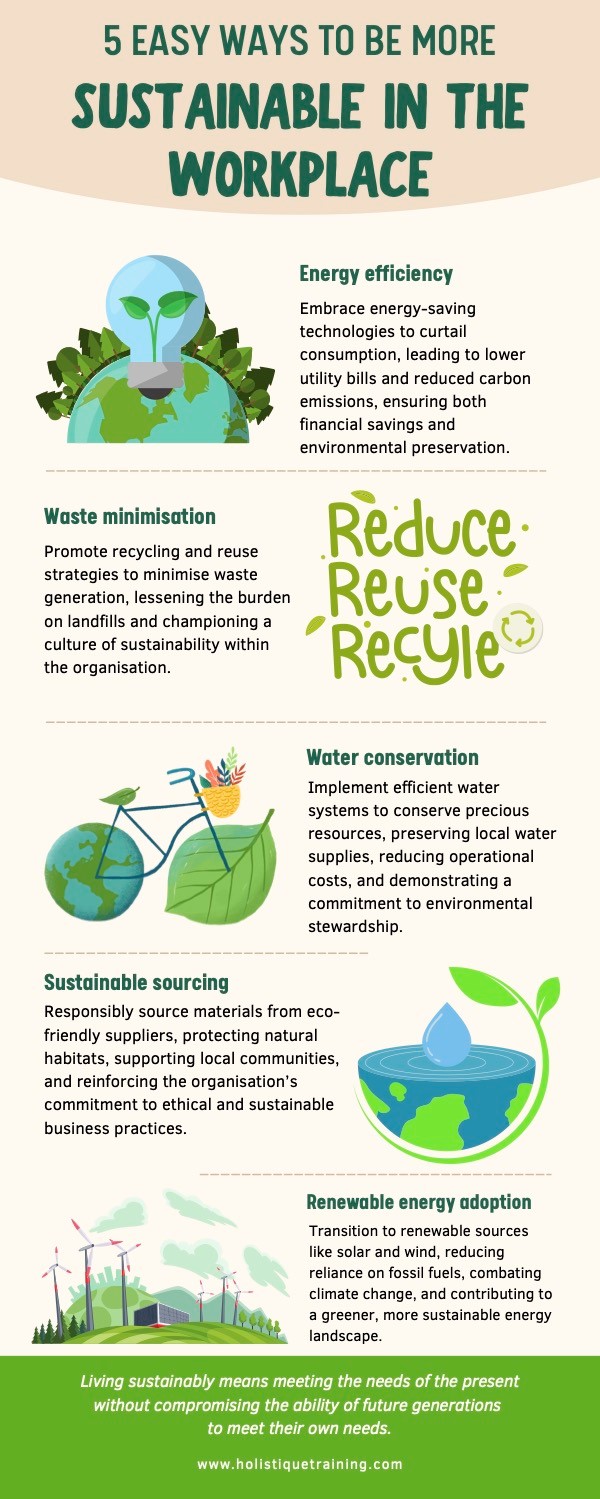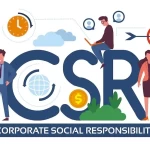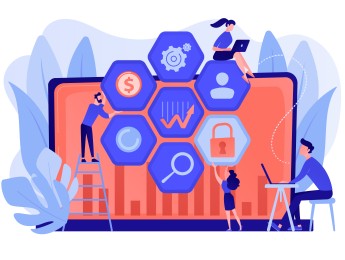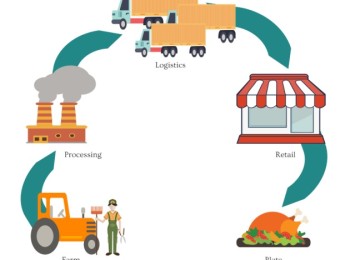- Table of Contents
- Introduction
- What Is Sustainability in the Corporate World?
- Economic Sustainability:
- Environmental Sustainability:
- Social Sustainability:
- Sustainable Development Goals (SDGs):
- Who Is Sustainability Training for?
- 1- Frontline Employees
- 2- Middle Management
- 3- Senior Leadership
- 4- Human Resources
- 5- Procurement and Supply Chain
- 6- Marketing and Sales Teams
- 7- Legal and Compliance
- 8- Corporate Affairs and Public Relations
- 8 Reasons Why Sustainability Training for Employees Is Essential
- 1. Environmental Stewardship
- 2. Cost Reduction
- 3. Competitive Advantage
- 4. Legal Compliance
- 5. Employee Engagement
- 6. Risk Mitigation
- 7. Innovation
- 8. Global Responsibility
- 5 Ways to Provide In-House Sustainability Training for Employees
- 1. Mentorship Programmes
- 2. Online Courses and Learning Platforms
- 3. Workshops and Seminars
- 4. Interactive E-Learning Modules
- 5. Green Teams and Internal Sustainability Initiatives
- Challenges of Sustainability Training in the Workplace
- Resistance to Change
- Resource Constraints
- Lack of Awareness
- Measuring Impact
- Complexity
- Sustainability Training in the Digital Era
- E-Learning Platforms and Mobile Apps
- Gamification
- Virtual Reality (VR) and Augmented Reality (AR)
- Data Analytics and Personalised Learning
- Social Learning and Collaboration
- Blockchain for Transparency and Accountability
- Conclusion
Introduction
From towering skyscrapers to bustling factories, from corner offices to shop floors, sustainability is a term that has become ubiquitous in the corporate world. Beyond the buzzwords and slogans, it's a pivotal concept that holds the key to a better future for our planet and our businesses. In this blog post, we'll delve deep into the world of sustainability training for employees, exploring its significance, target audience, reasons for its essentiality, methods of delivery, challenges, and how it's adapting to the digital era.
What Is Sustainability in the Corporate World?
In the vast landscape of modern corporations, sustainability is more than just a buzzword; it’s a guiding principle shaping the future of business. The fact that most job descriptions include sustainability as a requirement, such as at Cornell, according to Sustainable Campus, it is now evident that sustainability is taking over the corporate world. It transcends mere environmentalism; it's a holistic approach that seeks harmony between economic growth, environmental protection, and social equity. Picture a sustainable corporation as a multifaceted entity, a juggler balancing economic profitability, environmental responsibility, and social consciousness with finesse.
Economic Sustainability:
Economic sustainability forms the bedrock of any business endeavour. It revolves around practices that ensure financial stability, growth, and long-term viability. Sustainable businesses prioritise not just immediate profits, but also enduring economic health. This involves prudent financial management, ethical accounting practices, and investments in research and development for innovative, sustainable products and services. Economic sustainability also implies fair treatment of employees, including offering competitive wages and fostering a supportive work environment to enhance productivity and employee retention.
Environmental Sustainability:
Environmental sustainability delves into the intricate relationship between businesses and their natural surroundings. It’s about acknowledging that every product created and every service offered has an ecological footprint. Sustainable corporations meticulously assess and mitigate this impact. This might involve reducing greenhouse gas emissions, conserving water resources, minimising waste, and adopting renewable energy sources. Companies committed to environmental sustainability often engage in eco-friendly practices such as recycling, using biodegradable materials, and implementing energy-efficient technologies.
Social Sustainability:
The human aspect of sustainability is encapsulated within social sustainability. It emphasises the well-being of employees, communities, and society at large. Ethical labour practices, diversity and inclusion, employee welfare programmes, and community engagement initiatives all fall under this expansive umbrella. A socially sustainable corporation invests in its employees' growth and satisfaction, fostering a sense of belonging and loyalty. Moreover, it actively participates in community development, supporting local schools, healthcare facilities, and social welfare projects, thus enriching the lives of those in the surrounding areas.
Sustainable Development Goals (SDGs):
The United Nations Sustainable Development Goals (SDGs) serve as a global blueprint for a more sustainable future. These 17 interconnected goals cover diverse areas such as poverty, inequality, climate change, environmental degradation, peace, and justice. Corporations aligning their strategies with these goals not only contribute significantly to societal progress but also bolster their own reputations as responsible global citizens. By actively addressing these SDGs, businesses become pivotal players in the global effort to create a more equitable and sustainable world.
In essence, sustainability in the corporate world isn’t a one-size-fits-all concept. It's about customisation, tailoring sustainable practices to align with a company’s specific industry, resources, and societal context.
Who Is Sustainability Training for?
In the intricate tapestry of a modern organisation, sustainability training is not a privilege reserved for a select few—it is a transformative journey designed for everyone within the corporate ecosystem. From the boardroom strategists to the hands-on artisans shaping products, sustainability training finds its relevance in the lives and roles of diverse individuals, each playing a unique part in the grand scheme of the business. Let’s unravel the layers of this inclusive training paradigm and explore the myriad individuals it touches:
1- Frontline Employees
At the forefront of operations are the frontline employees—the unsung heroes of day-to-day business. They are the assembly line workers, customer service representatives, and retail staff interacting directly with products, services, and clients. Sustainability training empowers them with knowledge about eco-friendly materials, energy-efficient processes, and waste reduction techniques. Armed with this understanding, they become ambassadors of sustainable practices, ensuring that the core operations of the business align with environmental stewardship.
2- Middle Management
The middle management cadre occupies a pivotal position in the organisational hierarchy. They bridge the gap between strategic visions and practical implementation. Sustainability training equips them with the skills to translate lofty sustainability goals into actionable plans. They learn to integrate eco-conscious practices into the routine operations of their departments, fostering a culture of environmental responsibility. Their role is not just to supervise but also to inspire, ensuring that sustainability becomes an inherent part of every team’s objectives.
3- Senior Leadership
At the helm of the ship are the senior leaders—the visionaries steering the corporate vessel through the complexities of the market. Sustainability training for this elite group is not just about understanding environmental metrics; it’s about embracing a mindset that views sustainability as a core business strategy. It’s about crafting policies that are not just profit-driven but also planet-friendly. Senior leaders learn to embed sustainability in the organisational DNA, making strategic decisions that harmonise financial growth with ecological and societal well-being.
4- Human Resources
Human Resources (HR) professionals are the architects of the company’s human capital. They shape the recruitment, development, and retention strategies of the workforce. Sustainability training for HR teams is transformative in nature. It’s about integrating sustainability criteria into the hiring process, ensuring that the company recruits individuals who resonate with its eco-conscious ethos. HR professionals also play a pivotal role in employee engagement initiatives, fostering a sense of pride and belonging among employees who contribute to sustainable practices.
5- Procurement and Supply Chain
Procurement and supply chain management are intricately linked with sustainability. Ethical sourcing, responsible logistics, and fair trade practices are paramount. Sustainability training in this domain focuses on forging partnerships with eco-friendly suppliers, reducing the carbon footprint associated with transportation, and ensuring the ethical treatment of workers in the supply chain. Professionals in this area become adept at selecting suppliers who share the organisation’s commitment to sustainability, thereby creating a ripple effect of positive change.
6- Marketing and Sales Teams
The marketing and sales teams are the storytellers of the company, conveying its values and products to the world. Sustainability training for these creative minds is about articulating the company’s eco-friendly initiatives in a compelling manner. They learn to weave narratives that resonate with eco-conscious consumers, showcasing how the company’s products or services make a positive impact on the planet. By understanding the nuances of sustainability, these teams craft marketing campaigns that not only boost sales but also raise awareness about environmental issues.
7- Legal and Compliance
Legal and compliance professionals navigate the intricate web of regulations and ensure that the organisation operates within the bounds of the law. Sustainability training in this context is about understanding environmental legislation, ensuring compliance with eco-friendly standards, and proactively addressing potential legal challenges related to sustainability. These professionals become guardians of the company’s ethical practices, safeguarding it from legal complications that might arise due to environmental non-compliance.
8- Corporate Affairs and Public Relations
Corporate affairs and public relations teams are responsible for shaping the company’s public image. Sustainability training for these professionals is transformative in nature, teaching them to communicate the company’s commitment to sustainability with authenticity and transparency. They become advocates for the company’s environmental initiatives, engaging with stakeholders and communities to foster mutual understanding and support. By effectively conveying the company’s sustainability narrative, they enhance its reputation as a responsible corporate citizen.
In essence, sustainability training is not an exclusive enclave accessible to a chosen few. It is a collective journey that permeates every stratum of the organisation. From the ground level to the boardroom, from procurement to public relations, every individual within the corporate realm is a participant in this transformative odyssey. Sustainability training is not just a process; it’s a mindset, a shared understanding that every action, regardless of its scale, can contribute to a greener, more equitable world. It’s an acknowledgment that sustainability is not a destination but a continuous voyage—one that every member of the organisation embarks upon, hand in hand, toward a future where businesses thrive in harmony with the planet and its people.
8 Reasons Why Sustainability Training for Employees Is Essential
In the corporate world where change is the only constant, embracing sustainability isn't just a choice; it's an ethical obligation and a strategic imperative. Companies that integrate sustainable practices into their core ethos not only contribute to the global environmental effort but also position themselves as leaders in an increasingly eco-conscious market. At the heart of this transformation lies sustainability training for employees—a powerful catalyst that sparks awareness, ignites action, and fosters a culture of responsibility. In fact, a 2016 survey revealed that 70% of the respondents feel more loyal to companies engaged in sustainability initiatives, and more than half of them, 58% to be exact, consider a company's sustainability commitments when searching for job opportunities. That being said, let’s delve into the compelling reasons why sustainability training for employees is not merely an option but an essential investment in a brighter, more sustainable future:
1. Environmental Stewardship
Sustainability training instils a profound sense of environmental stewardship among employees. By understanding the impact of their actions on the ecosystem, individuals become conscious custodians of the environment. They learn how their decisions, both in the workplace and in their personal lives, can contribute to reducing carbon emissions, conserving resources, and protecting biodiversity. This awareness transforms them into advocates for eco-friendly practices, ensuring that the organisation operates as a beacon of environmental responsibility.
2. Cost Reduction
Sustainability training equips employees with the knowledge and skills to identify areas of wastage and inefficiency within the organisation. By adopting sustainable practices, companies can significantly reduce operational costs. Whether it's through energy conservation, waste reduction, or optimised use of resources, employees become instrumental in identifying and implementing cost-saving measures. These financial savings not only enhance the company's bottom line but also contribute to a sustainable economic future.
3. Competitive Advantage
In a market where consumers are increasingly inclined towards environmentally responsible products and services, sustainability training bestows a unique competitive advantage. Employees, well-versed in sustainable practices, become ambassadors of the company’s commitment to the planet. Such authenticity resonates with eco-conscious consumers, fostering brand loyalty and trust. A company that genuinely embraces sustainability stands out amidst competitors, drawing environmentally aware customers who seek products and services aligned with their values.
4. Legal Compliance
Navigating the labyrinth of environmental regulations and standards is a complex task. Sustainability training ensures that employees are well-informed about legal requirements related to environmental protection. By understanding and adhering to these regulations, companies avoid legal complications and potential fines. Compliance not only safeguards the organisation's reputation but also fosters a culture of ethical responsibility that extends beyond mere legal obligations.
5. Employee Engagement
Employees are the lifeblood of any organisation, and their engagement is paramount to productivity and innovation. Sustainability training demonstrates a company’s commitment to societal and environmental well-being, resonating deeply with employees who seek purpose and meaning in their work. Engaged employees are more motivated, creative, and loyal. They take pride in contributing to a company that prioritises values beyond profit, leading to a harmonious workplace culture where passion for sustainability drives collaboration and innovation.
6. Risk Mitigation
Sustainability training equips employees with the ability to identify and address potential risks associated with climate change, resource depletion, and environmental degradation. By proactively mitigating these risks, organisations safeguard their supply chains, operations, and reputation. Forward-thinking companies recognise that integrating sustainability into risk management strategies is not just prudent but imperative for long-term resilience in an ever-changing world.
7. Innovation
A culture of sustainability fosters innovation. Employees, armed with knowledge about sustainable practices, are encouraged to think creatively and propose innovative solutions to environmental challenges. This spirit of innovation leads to the development of eco-friendly products, energy-efficient technologies, and sustainable business models. Through sustainability training, employees become catalysts for transformative ideas, driving the organisation toward a future where innovation and environmental responsibility go hand in hand.
8. Global Responsibility
In today's interconnected world, companies have a global footprint. Sustainability training imparts a sense of global responsibility, emphasising the interconnectedness of economies, societies, and ecosystems. Employees learn how their actions, even within local contexts, can have far-reaching consequences globally. By nurturing this awareness, organisations foster a sense of shared global citizenship, where the pursuit of sustainable practices becomes a collective endeavour transcending borders and cultures.
In short, sustainability training for employees is not just an investment; it’s an essential commitment to the well-being of the planet and the prosperity of future generations. It’s a testament to the organisation's ethos, reflecting a deep understanding of its role in creating a sustainable world. Through education, awareness, and collective action, employees become the driving force behind a corporate revolution—one that integrates profit with purpose, ensuring that businesses thrive while contributing meaningfully to a sustainable, equitable, and harmonious global future.
5 Ways to Provide In-House Sustainability Training for Employees
Nurturing a sustainable ethos within an organisation demands more than just good intentions—it requires a structured, engaging approach to employee education. In-house sustainability training serves as the cornerstone for fostering a culture of environmental responsibility and social consciousness. Here are five innovative and effective methods to provide comprehensive sustainability training for employees, ensuring that the principles of eco-consciousness are not just learned but ingrained into the very fabric of the organisational culture:
1. Mentorship Programmes
Mentorship programmes create a nurturing environment where experienced employees, well-versed in sustainable practices, mentor their peers and newcomers. Through one-on-one interactions and shared experiences, mentees gain practical insights into integrating sustainability into their roles. These mentorship relationships offer a personalised learning experience, allowing employees to ask questions, seek guidance, and receive hands-on training tailored to their specific responsibilities. Such programmes create a sense of community and camaraderie, fostering an environment where sustainability becomes a shared journey rather than a solitary endeavour.
2. Online Courses and Learning Platforms
Embracing the digital age, organisations can harness the power of online courses and learning platforms to deliver comprehensive sustainability training. These platforms offer diverse modules, ranging from basic environmental awareness to advanced eco-friendly practices. Employees can access these resources at their convenience, allowing them to learn at their own pace. Interactive multimedia elements, quizzes, and case studies make the learning experience engaging and immersive. Moreover, these platforms often allow for tracking progress, enabling HR teams to monitor employee participation and assess the effectiveness of the training initiatives.
3. Workshops and Seminars
Live workshops and seminars provide a dynamic platform for interactive learning. Inviting experts and thought leaders in the field of sustainability to conduct these sessions imparts valuable real-world insights. Workshops can include hands-on activities, group discussions, and problem-solving exercises centred around sustainability challenges. Employees actively engage with the subject matter, share experiences, and collaborate on solutions. Seminars featuring inspirational speakers not only educate but also inspire, instilling a sense of purpose and passion for sustainability among the workforce.
4. Interactive E-Learning Modules
Interactive e-learning modules take traditional online courses to the next level by incorporating immersive simulations and decision-making scenarios. Employees are presented with realistic situations where they must apply sustainable practices to solve challenges. These modules allow learners to make choices, observe consequences, and learn from both successes and failures in a risk-free environment. Interactive e-learning modules stimulate critical thinking, problem-solving, and creativity, empowering employees to apply their knowledge in diverse, complex situations they may encounter in their roles.
5. Green Teams and Internal Sustainability Initiatives
Forming dedicated green teams within the organisation is a proactive approach to sustainability training. These teams comprise passionate individuals from various departments, united by their commitment to environmental causes. Green teams can organise regular training sessions, workshops, and awareness campaigns. They can also initiate internal sustainability projects, such as waste reduction drives, energy-saving challenges, or tree planting initiatives. By actively participating in these projects, employees not only learn but also experience firsthand the impact of sustainable practices. Green teams create a grassroots movement within the organisation, fostering a culture where employees drive sustainability initiatives collaboratively.
Incorporating these methods into the training framework not only imparts knowledge but also nurtures a deep sense of ownership and responsibility among employees. Sustainability training ceases to be a mere formality; it becomes a shared mission, a collective endeavour where each employee plays a vital role. By investing in innovative in-house training programmes, organisations empower their workforce to be champions of sustainability, ensuring that eco-consciousness becomes an integral part of the organisational identity. Through mentorship, digital platforms, interactive modules, and internal initiatives, companies pave the way for a future where sustainable practices are not just learned but lived, creating a lasting legacy of environmental stewardship and global responsibility.

Challenges of Sustainability Training in the Workplace
Embarking on the journey toward sustainability in the workplace is undoubtedly noble and necessary. However, this path is not without its hurdles. As organisations strive to instil eco-consciousness in their employees, they encounter a spectrum of challenges that demand careful navigation and innovative solutions. Acknowledging these challenges is the first step toward overcoming them, ensuring that sustainability training becomes not just a programme but a transformative cultural shift within the workplace.
Resistance to Change
Human nature tends to resist change, especially when it disrupts established routines. Introducing new sustainable practices can be met with scepticism and resistance from employees comfortable with existing processes. Overcoming this challenge requires effective communication, emphasising the benefits of sustainability, and demonstrating how these changes contribute to a better working environment and a healthier planet. Encouraging participation and involving employees in decision-making processes can also mitigate resistance, fostering a sense of ownership in the sustainability initiatives.
Resource Constraints
Implementing comprehensive sustainability training programmes requires investments of time, money, and manpower. Small and medium-sized enterprises, in particular, may find themselves constrained by limited resources. To address this challenge, organisations can leverage cost-effective digital platforms and open-source educational resources. Additionally, partnering with external sustainability organisations or government initiatives can provide access to valuable training materials and expertise, alleviating the burden on internal resources.
Lack of Awareness
One of the fundamental challenges in sustainability training is the lack of awareness among employees. Some individuals may not fully comprehend the urgency of environmental issues or the significance of their roles in mitigating them. Overcoming this challenge requires a multifaceted approach: raising awareness through informative workshops, engaging employees in discussions about global environmental challenges, and illustrating how their everyday actions impact the larger ecological picture. Demonstrating real-life examples of successful sustainability initiatives can effectively convey the tangible impact of individual contributions.
Measuring Impact
Quantifying the impact of sustainability training initiatives can be challenging. Unlike traditional metrics such as revenue or sales figures, the impact of sustainability efforts is often multifaceted and qualitative. Companies need to develop specific Key Performance Indicators (KPIs) related to sustainability, such as reduced energy consumption, waste reduction percentages, or the adoption rate of eco-friendly practices. Regular assessments and surveys can also provide valuable feedback, helping organisations gauge the effectiveness of their training programmes and make data-driven improvements.
Table 1: Key Performance Indicators (KPIs) for sustainability training
KPIs | Description | Measurement Approach |
Energy Consumption | Measure total energy usage in the workplace. | Use energy metres and utility bills. |
Waste Diversion Rate | Track the percentage of waste diverted from landfills. | Compare recycled and landfill waste. |
Employee Engagement Levels | Assess employees' active participation in sustainability initiatives. | Conduct regular surveys and feedback. |
Carbon Footprint Reduction | Quantify the decrease in the organisation's carbon emissions. | Use carbon calculators and emission reports. |
Sustainable Product Sales | Monitor sales of eco-friendly products or services. | Track revenue from sustainable offerings. |
Complexity
Sustainability is a multifaceted concept, encompassing environmental, social, and economic dimensions. Understanding this complexity and translating it into clear, actionable training programmes can be challenging. Simplifying the message without oversimplifying the issue is key. Training materials should be tailored to the audience, providing practical, relatable examples and actionable steps. Breakdowns of complex concepts into digestible modules can enhance comprehension, ensuring that employees grasp the interconnectedness of sustainability without feeling overwhelmed.
Addressing these challenges demands creativity, persistence, and a genuine commitment to change. Organisations must approach sustainability training as a continuous, evolving process, adapting their methods and messages based on feedback and outcomes. Moreover, fostering a culture of open communication, where employees can express concerns and propose ideas, is essential. By surmounting these challenges, organisations can transform obstacles into opportunities, nurturing a workforce that not only understands the importance of sustainability but actively champions it, paving the way for a greener, more sustainable future.
Sustainability Training in the Digital Era
The digital era has ushered in a new paradigm for education and learning, transforming how knowledge is disseminated and acquired. In the realm of sustainability training, this digital revolution presents unprecedented opportunities to reach a wider audience, foster global collaboration, and leverage innovative technologies for more effective and engaging educational experiences. Here’s a closer look at how sustainability training is evolving in the digital era:
E-Learning Platforms and Mobile Apps
E-learning platforms and mobile apps have democratised education, offering anytime, anywhere access to sustainability training modules. These platforms provide a diverse range of courses, from basic environmental awareness to specialised certifications in sustainable practices. Mobile apps, specifically designed for sustainability education, deliver bite-sized lessons, quizzes, and interactive activities, making learning not only accessible but also engaging and interactive. Employees can conveniently learn at their own pace, whether during their daily commute or during a lunch break, maximising the efficiency of their learning experience.
Gamification
Gamification is revolutionising the way employees engage with sustainability training. By incorporating game elements such as points, badges, and rewards, gamified training modules transform learning into a playful and competitive experience. Employees can compete with colleagues, earn achievements, and progress through levels, all while learning about eco-friendly practices. Gamification not only enhances motivation and engagement but also fosters a spirit of friendly competition, encouraging employees to actively participate and excel in their sustainability knowledge.
Virtual Reality (VR) and Augmented Reality (AR)
Virtual Reality (VR) and Augmented Reality (AR) technologies are revolutionising sustainability training by providing immersive, interactive experiences. VR simulations can transport employees to virtual environments where they can explore eco-friendly solutions, witness the impact of climate change, or engage in virtual tours of sustainable facilities. AR applications, on the other hand, overlay digital information on the real world, allowing employees to visualise sustainable practices in their own workspace. These technologies enhance experiential learning, enabling employees to grasp complex concepts in a tangible, memorable way.
Data Analytics and Personalised Learning
Data analytics play a pivotal role in tailoring sustainability training to individual needs. By analysing employees’ learning patterns and preferences, organisations can create personalised learning pathways. Personalised training ensures that employees receive content relevant to their roles and interests, maximising the effectiveness of the training programme. Data analytics also enable organisations to track the progress of individual employees and identify areas where additional support or resources may be needed, allowing for targeted interventions and support.
Social Learning and Collaboration
Digital platforms facilitate social learning and collaboration among employees. Online forums, discussion boards, and collaborative projects enable employees from different departments and locations to share insights, best practices, and success stories related to sustainability. Social learning encourages the exchange of ideas, fosters a sense of community, and empowers employees to learn from each other. Collaborative projects, facilitated through digital platforms, allow employees to work together on real-world sustainability initiatives, translating theoretical knowledge into practical solutions.
Blockchain for Transparency and Accountability
Blockchain technology is being explored to enhance transparency and accountability in sustainable supply chains. By utilising blockchain, organisations can create immutable, tamper-proof records of their sustainability efforts. This technology ensures the traceability of products and raw materials, enabling consumers to verify the authenticity of eco-friendly claims. Implementing blockchain in sustainability training emphasises the importance of transparency and ethics, reinforcing the organisation's commitment to responsible business practices.
In the digital era, sustainability training is not confined to traditional classrooms or paper-based materials. It embraces the power of technology to create dynamic, interactive, and personalised learning experiences. By harnessing the capabilities of e-learning platforms, gamification, VR, AR, data analytics, social learning, and blockchain technology, organisations are not only educating their employees but also inspiring a generation of environmentally conscious leaders. Sustainability training in the digital age transcends geographical boundaries, creating a global network of empowered individuals who are equipped with the knowledge and passion to drive positive change. As technology continues to evolve, the future of sustainability training holds endless possibilities, ensuring that environmental education remains at the forefront of corporate agendas in the digital era and beyond.
Conclusion
Sustainability training for employees is not just a trend; it's a necessity in today's corporate landscape. By instilling sustainability principles throughout the workforce, organisations can achieve a triple bottom line of profit, planet, and people. It's a journey that begins with education and continuous learning, ensuring that businesses not only survive but thrive in a world where sustainability is no longer a choice but an imperative. Start the journey today, and together, we can create a brighter, more sustainable future for all.
If you're inspired by this transformative journey and eager to propel your organisation to new heights of ethical and sustainable practices, we invite you to explore our comprehensive course: ‘Corporate Social Responsibility (CSR) Framework Implementation & Management.’ Dive into an immersive learning experience crafted to guide you through the intricacies of CSR, equipping you with the tools and insights needed to integrate social responsibility seamlessly into your organisation’s core strategies. Embark on this transformative adventure and become a trailblazer in the realm of corporate sustainability. Together, let's shape a future where businesses thrive, communities prosper, and our planet flourishes. Enrol now and be the change your organisation and the world need.
























